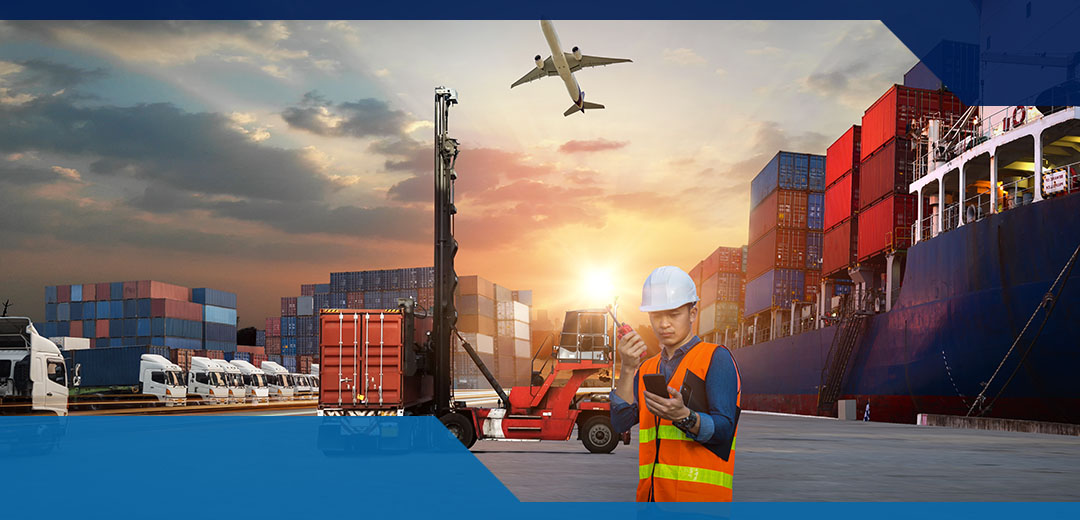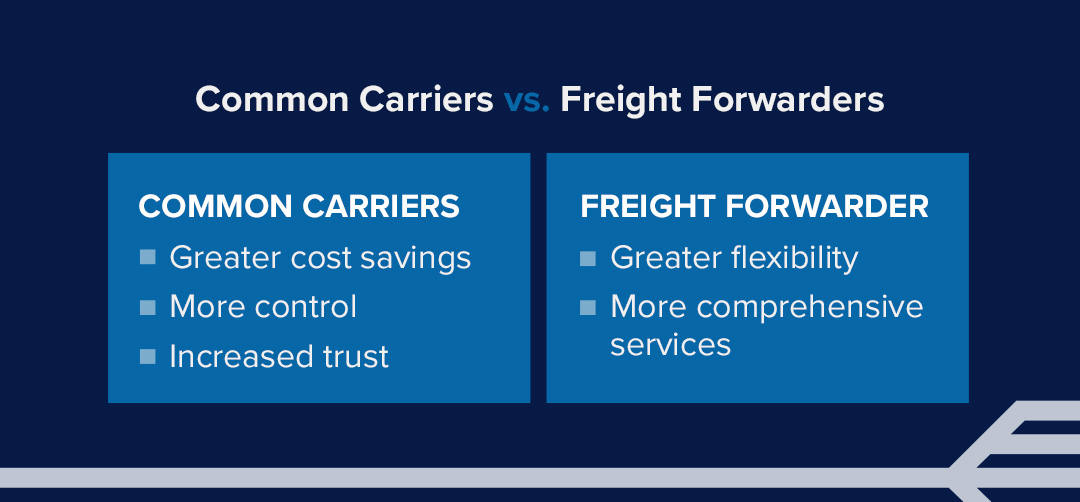
Choosing between a common carrier and a freight forwarder can seem complicated. These service providers offer specific solutions depending on your business’s requirements, making it complex to determine which is best for you at first glance. Still, it’s important to do enough research and understand what each service provides so you can make the most lucrative decision for your business.
A Quick Breakdown of Each Option
Your export business needs a reliable transport provider to get your goods where they need to go. Both a common carrier and freight forwarder can assist you with transportation — but they do so in significantly different ways.
Definition and Role of a Common Carrier
A common carrier is a company that transports goods from one destination to another for a set rate. They usually have regular routes and consult with multiple shippers.
A common carrier’s primary service is transportation, and their services can span a wide range of transportation modes, including air, rail, ship and truck. Their focus is on transport, and many carriers usually do not assist with any other part of the overall transport process.
Definition and Role of a Freight Forwarder
A freight forwarder is a company that organizes the shipment of goods to a destination. The freight forwarder does everything except carry the cargo — for this service, they work with multiple carriers across varying transport methods. They organize the entire shipping process to ensure speed and cost efficiency.
Some of the services a freight forwarder provides include:
- Route and transport mode planning
- Shipping and cargo insurance
- Cargo tracking
- Import and export documentation
- Inventory packing, sorting and storage
- Customs brokerage and clearance
A freight forwarder takes care of your entire transport process and needs, from packaging, delivery and shipment to customs clearance and storage.
Key Distinctions
The main difference between a common carrier and a freight forwarder is that the carrier transports the goods while the forwarder organizes the transportation process. Freight forwarders are not carriers and do not own equipment or containers — they liaise with common carriers to use their services.
Cost-Benefit Analysis

The advantages of using a common carrier instead of a freight carrier include:
- Greater cost savings: You’ll work directly with the carrier, reducing the costs involved with a middle party such as a freight forwarder.
- More control: You manage the shipment costs and process by choosing which carrier to use. A freight forwarder would make these decisions on your behalf.
- Increased trust: It takes time to develop relationships with a carrier — working directly with one provider for an extended period creates a reliable and familiar relationship. A freight forwarder works and communicates with multiple carriers directly, meaning you can’t build a relationship with the carriers yourself.
In comparison, the advantages of using freight forwarder include:
- Greater flexibility: Freight forwarders have large carrier networks they can rely on when problems arise, meaning they can support you in various situations.
- More comprehensive services: Without a freight forwarder, your business is responsible for handling the transportation process and the relevant documents and fees. This process can become complicated, and mistakes with documentation and costs may result in hefty fines and delays. Freight forwarders manage all of these administrative tasks, so your business remains compliant and efficient.
How to Choose Between a Freight Forwarder and a Common Carrier for Your Business
The main deciding factors when choosing between a common carrier and a freight forwarder are logistic complexity and scale. As a business, you need to determine the following:
- If you will ship internationally or domestically
- How large your shipments will be
- How far you plan to ship
- How many transport modes you require to reach your destinations
Smaller businesses that only need to ship small quantities of goods through one carrier mode will benefit from a common carrier, as it’s more cost-effective. A business that needs to ship a larger scale of goods using multiple carriers will benefit from a freight forwarder — they remove the stress of organization and ensure you access the most efficient routes.
When shipping goods internationally, freight forwarders can help you remain compliant and up to date with your documentation. In comparison, domestic shipping is not as complicated, so working with a common carrier directly is often sufficient.

